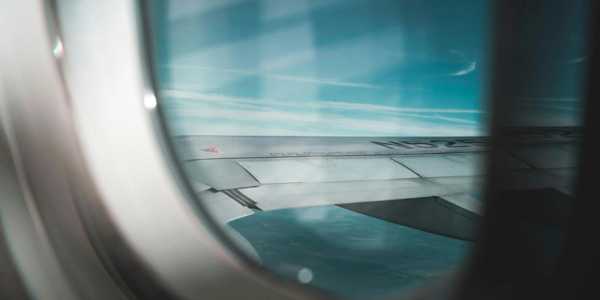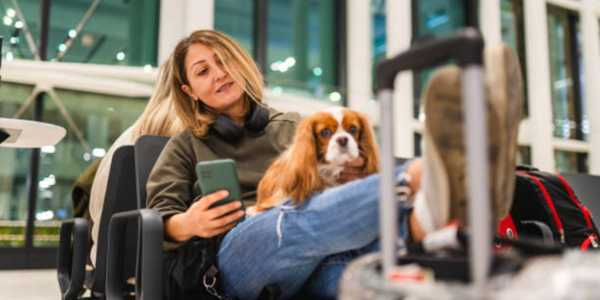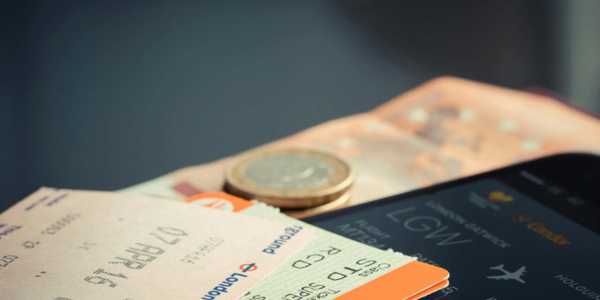How to Cope with Your Fear of Flying: A Comprehensive Guide
You are palpitating, your hands sweating, when the announcement is made, “Passengers flying to Los Angeles to gate 12.” Fear of flying, also known as aviophobia, concerns many people around the world. First and foremost, understand that you are not alone.
Air travel is one of the safest modes of transport that is out there, but this fact also doesn’t bring any ease to people with aviophobia. Don’t worry, there are many ways to cope with this fear and eventually, even overcome it.
In this blog, we’ll explore some practical strategies and expert tips for managing your fear of flying.
Understanding the Fear of Flying
Understanding your fear is the first step in overcoming it. How are you to deal with something that you don’t even fully understand? So where does your fear stem from?
- Fear of heights (acrophobia): The idea of being thousands of feet in the air, is that what makes this unnerving?
- Lack of control: Unlike driving a car, you’re not in control when flying, which can lead to anxiety.
- Claustrophobia: The confined space of an airplane can feel suffocating to some.
- Fear of turbulence: The unpredictable bumps and jolts can trigger fear of accidents.
- Negative past experiences: A turbulent flight, scary news stories, or even fictional movies about plane crashes can amplify fears.

Observe and figure out what has caused this fear. Then you can tailor coping mechanisms that are suited well to your issue.
1. Educate Yourself About Flying
Knowledge can be incredibly empowering when it comes to managing fears. Learning about the mechanics of flight, safety measures, and the statistics behind air travel can provide a sense of reassurance.
- Air travel is one of the safest modes of transportation. According to the International Air Transport Association (IATA), the chances of a plane crash are 1 in 11 million.
- Turbulence, while uncomfortable, is a normal part of flying and rarely dangerous. Modern airplanes are designed to withstand even severe turbulence.
- Pilots undergo extensive training and simulations to prepare for every possible scenario.
- You can find educational resources on aviation from reputable sources like airlines, flight schools, or even YouTube channels run by professional pilots.
2. Identify and Challenge Your Thoughts
Anxiety often stems from irrational thoughts or worst-case scenarios. Cognitive-behavioral techniques (CBT) can help you challenge and reframe these thoughts.
- Ask yourself: What evidence supports my fear? What evidence contradicts it?
- Replace “What if the plane crashes?” with “Flying is statistically safer than driving.”
- Practice grounding techniques, such as focusing on the present moment, to avoid spiraling into “what-ifs.”
3. Practice Relaxation Techniques
Learning how to calm your body and mind can make a significant difference during flights.
- Breathing exercises: Practice deep breathing by inhaling for four counts, holding for four counts, and exhaling for six counts.
- Progressive muscle relaxation: Starting from your toes, slowly tense and release each muscle group.
- Visualization: Imagine yourself arriving safely at your destination, enjoying the sights, and feeling proud of conquering your fear.
These techniques can be practiced regularly, so they feel natural when you’re on a plane.
4. Face Your Fear Gradually
Gradual exposure to your fear can help desensitize you over time.
- Start small: Visit an airport to familiarize yourself with the environment.
- Take short flights: Begin with shorter, domestic flights to build confidence.
- Use a flight simulator: Apps and virtual reality (VR) experiences can simulate the experience of flying in a controlled environment.
Each step should be manageable and give you a sense of accomplishment.

5. Distract Yourself During the Flight
Keeping your mind occupied can reduce anxiety during the flight.
- Bring entertainment: Download movies, TV shows, or podcasts you enjoy.
- Engage your senses: Listen to calming music or carry a stress-relief essential oil like lavender.
- Stay active: Use in-flight magazines, puzzle books, or even your meal as a distraction.
The key is to keep your mind focused on something other than your fear.
6. Consider Professional Help
If your fear of flying significantly impacts your life, seeking help from a professional therapist can be incredibly beneficial.
- Exposure therapy: Gradual and repeated exposure to the fear in a safe setting can help reduce its intensity.
- Cognitive-behavioral therapy: A therapist can help you identify and challenge irrational thoughts about flying.
- Medication: For some, anti-anxiety medications prescribed by a doctor can help during flights.
Therapy programs specifically designed for aviophobia are offered by many airlines and mental health organizations.
7. Plan to Reduce Stress
Feeling prepared can help alleviate pre-flight jitters.
- Choose the right seat: Book a seat near the wing, where turbulence is less noticeable, or by the window if you prefer to see outside.
- Arrive early: Avoid the stress of rushing by getting to the airport with plenty of time to spare.
- Inform the crew: Let the flight attendants know you’re a nervous flyer—they’re trained to offer support.
Creating a calm and organized travel experience can significantly reduce anxiety.
8. Lean on Support Systems
Flying with a supportive friend or family member can make the experience more manageable. If flying solo, consider joining online forums or support groups for people with a fear of flying. Hearing success stories and receiving encouragement from others who understand your fear can be incredibly motivating.
9. Reward Yourself
Celebrate your bravery after each flight. Treat yourself to a nice meal, buy a small souvenir, or simply reflect on your achievement. Associating flying with positive outcomes can help change your perception over time.
Let’s Get You Flying!
Fear of flying isn’t going to go away soon. Be patient and kind to yourself. Remember every step you take towards this could help you manifold. Next time you are faced with the dilemma of flying, try remembering about all the places and experiences you will have. That will keep you motivated. Safe travels!





